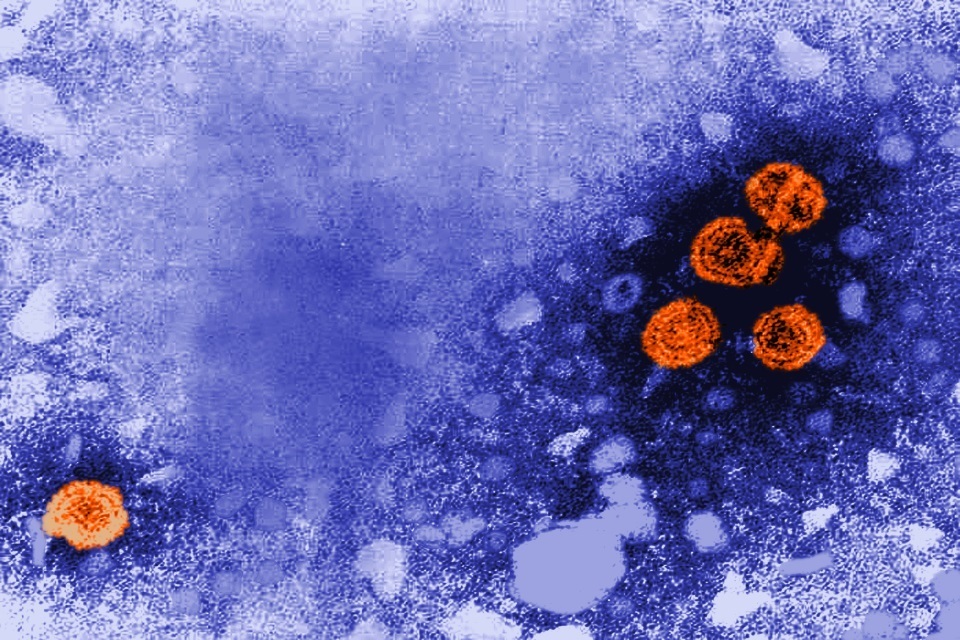
Hepatitis B is a viral infection that affects the liver, and if untreated can lead to serious liver damage including cirrhosis, cancer as well as death. It is passed on through blood, semen and vaginal fluids. An estimated 206,000 people are living with chronic hepatitis B infection in England.
The majority of cases are in migrants who have acquired infection overseas in endemic countries prior to arrival in the UK. Communities at higher risk of getting hepatitis B in the UK include people who inject drugs, gay, bisexual and men who have sex with men who are having sex with multiple partners, sex workers and people detained in prisons or immigration detention centres.
Pregnant women who have hepatitis B can pass the infection onto their baby around the time of birth – this is one of the most common routes of infection globally. To reduce the chances of a baby developing the infection, since the late 1990s all pregnant women in England have been offered an antenatal blood test for hepatitis B (as well as HIV and syphilis).
For women who test positive for hepatitis B, their newborn babies are offered a course of hepatitis B vaccination starting at birth. In addition to the targeted infant vaccination programme, in 2017 the UK introduced universal infant hepatitis B immunisation within the 6-in-1 vaccine at 8, 12 and 16 weeks of age.
In 2021 quarterly coverage for these 3 doses was 91 to 92 per cent, exceeding the WHO target of 90%. Through this successful 3-pronged approach, England has now met the WHO criteria for elimination of mother to child transmission. Achieving this is a key milestone in the WHO’s strategy for the overall elimination of viral hepatitis as a public health threat by 2030.
Although the risk of hepatitis B in the UK is low, the UK Health Security Agency (UKHSA) continues to encourage all those eligible to take up vaccination in order to lower the risk of themselves or their children becoming seriously ill in future. This includes people who have ever injected drugs, gay, bisexual and men who have sex with men, sex workers, people who have immigrated to the UK from countries where hepatitis is common and pregnant women.
Alongside hepatitis B, progress towards eliminating hepatitis C as a public health problem by 2030 in England continues. Hepatitis C is passed on in similar ways to hepatitis B infection, but there is no vaccine. Latest modelling suggests that 92,900 people were living with hepatitis C in the UK at the end of 2021 – a decline of 47.2% since 2015. Thanks to increased testing and curative treatments, the UK is on track to achieve 2030 WHO elimination goal for hep C based on current trends.
Dr Sema Mandal, Deputy Director for Blood Borne Viruses at UKHSA, said:
With the elimination of mother-to-child transmission of hepatitis B, very low hepatitis related death rates and continued reduction of chronic hepatitis C levels, we are on our way to our goal of eliminating hepatitis B and C in England by 2030.
Testing, vaccination for hepatitis B and curative treatments for hepatitis C have all played a significant role in driving down these infections.
Many people are unaware they have hepatitis because the viruses can be symptomless – meaning they aren’t getting the treatments they need and are possibly passing the virus on to others without knowing.
We continue to urge all those who have ever injected drugs, gay, bisexual and men who have sex with men, sex workers and people who have immigrated to the UK from countries where hepatitis B or C is common to come forward for free testing, treatment or hepatitis B vaccination.
Secretary of State for Health and Social Care Steve Barclay said:
We are paving the way for the elimination of hepatitis B and C, with England set to be one of the first countries in the world to wipe out these viruses.
Deaths and prevalence of hepatitis C have fallen consistently thanks to improvements in diagnosis and access to highly effective treatments that are available on the NHS.
This is another example of how we’re at the forefront of tackling serious diseases, through swiftly procuring the best treatments and tackling inequalities through testing and vaccination.
John Stewart, Director for Specialised Commissioning and interim Director of Commercial Medicines at NHS England, said:
We are pleased WHO has confirmed England has eliminated mother-to-child transmission of hepatitis B, thanks to universal screening and immunisation benefitting more than 9 in 10 infants.
The NHS is committed to increasing early detection diagnoses of blood-borne viruses, including rolling out opt-out testing for HIV, hep C and hep B in A&Es – building on the testing already routinely available through GPs and sexual health services across the country – and ensuring people have access to treatments and specialist support as early as possible.
Through screening programmes and national medicines deals that give NHS patients access to the latest drugs, England is also on track to become the first country to eliminate hepatitis C, which will be a landmark international achievement in public health.
Pamela Healy OBE, Chief Executive, British Liver Trust, said:
It is excellent news that England has met the ambitious target set by WHO and eliminated the transmission of Hepatitis B between mothers and children. The challenge now is for us to find the thousands of people living in England who have hepatitis but are completely unaware of it. Both hepatitis B and hepatitis C usually have no symptoms in the early stages, so it is vital to get tested if you have ever been exposed. To find out if you are at risk, the British Liver Trust has a simple questionnaire on their website.
Rachel Halford, CEO of The Hepatitis C Trust, said:
Thanks to government investment in an innovative elimination programme for hepatitis C, we are within reach of eliminating the virus before 2030 in England. To stay on track to reach this goal, we are in need of a hepatitis strategy to ensure that we are able to reach every at-risk population in the country, save more lives and maintain the elimination of both hepatitis C and B once reached.
Treatment for hepatitis C has never been easier and 95% of people are able to clear the virus after just a few months of taking medication. If you are worried about hepatitis C, our message to you is simple: get tested, get treated, get cured.








